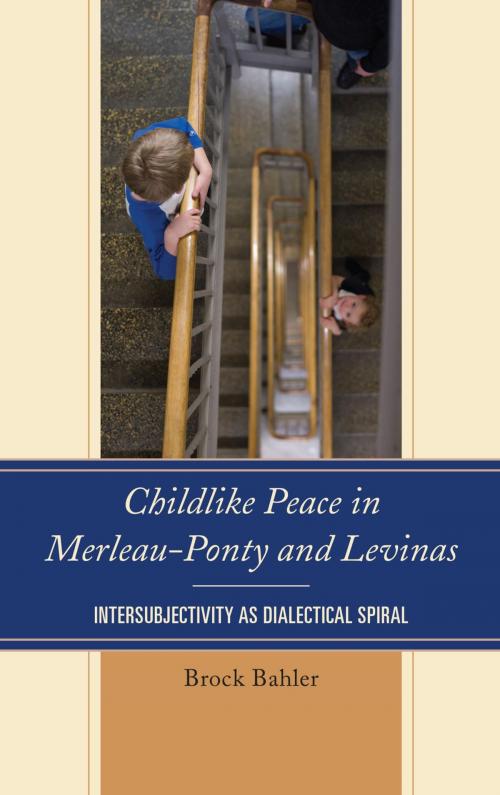Childlike Peace in Merleau-Ponty and Levinas
Intersubjectivity as Dialectical Spiral
Nonfiction, Religion & Spirituality, Philosophy, Phenomenology| Author: | Brock Bahler | ISBN: | 9781498518505 |
| Publisher: | Lexington Books | Publication: | August 1, 2016 |
| Imprint: | Lexington Books | Language: | English |
| Author: | Brock Bahler |
| ISBN: | 9781498518505 |
| Publisher: | Lexington Books |
| Publication: | August 1, 2016 |
| Imprint: | Lexington Books |
| Language: | English |
Childlike Peace in Merleau-Ponty and Levinas argues that the primordial structure of our personal encounters with others should be understood as a dialectical spiral. Drawing on the work of twentieth-century philosophers Maurice Merleau-Ponty and Emmanuel Levinas, and informed by recent advances in cognitive neuroscience and child development, Brock Bahler develops a phenomenological description of the parent-child relationship in order to articulate an account of intersubjectivity that is fundamentally ethically oriented, dialogical, and mutually dynamic. This dialectical spiral—in contrast to Cartesian tradition of the subject and the Hegelian master-slave dialectic—suggests that our lives are equiprimordially interwoven with both the richness of mutual engagement and the responsibility to be for-the-other. The parent-child relationship provides the basis for a theoretical account of intersubjectivity that is marked by a creative interaction between self and other that cannot be reduced to an economic exchange, a totalizing structure, or a unilateral asymmetrical responsibility.
In conversation with the philosophical thought of Merleau-Ponty, Levinas, Hegel, Sartre, and Freud, as well as recent research in cognitive neuroscience and child development, this work will be of interest for those working in the fields of continental philosophy, embodied cognition, philosophy of childhood, psychoanalysis, psychology, philosophy for children (P4C), and education.
Childlike Peace in Merleau-Ponty and Levinas argues that the primordial structure of our personal encounters with others should be understood as a dialectical spiral. Drawing on the work of twentieth-century philosophers Maurice Merleau-Ponty and Emmanuel Levinas, and informed by recent advances in cognitive neuroscience and child development, Brock Bahler develops a phenomenological description of the parent-child relationship in order to articulate an account of intersubjectivity that is fundamentally ethically oriented, dialogical, and mutually dynamic. This dialectical spiral—in contrast to Cartesian tradition of the subject and the Hegelian master-slave dialectic—suggests that our lives are equiprimordially interwoven with both the richness of mutual engagement and the responsibility to be for-the-other. The parent-child relationship provides the basis for a theoretical account of intersubjectivity that is marked by a creative interaction between self and other that cannot be reduced to an economic exchange, a totalizing structure, or a unilateral asymmetrical responsibility.
In conversation with the philosophical thought of Merleau-Ponty, Levinas, Hegel, Sartre, and Freud, as well as recent research in cognitive neuroscience and child development, this work will be of interest for those working in the fields of continental philosophy, embodied cognition, philosophy of childhood, psychoanalysis, psychology, philosophy for children (P4C), and education.















